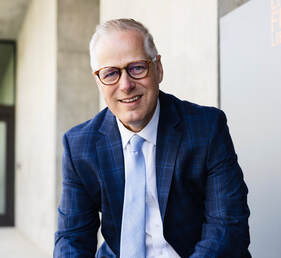|
11/21/2022 How to Facilitate District-Wide, Teacher-Led Curriculum Development with Dr. Steven WeberRead Now
Listen to the episode by clicking the link to your preferred podcast platform below:
Curriculum is part of every classroom, every grade level, and every subject matter. It’s key importance to the field of teaching and education demands we’re always checking in and asking: how is our curriculum serving and supporting students? In his role as the Associate Superintendent of Teaching and Learning with Fayetteville Public Schools, Dr. Steven Weber is continually asking just this. Through an extensive curriculum development project, he’s asking: is our curriculum relevant for students today? We chatted about this and other topics on episode 95 of the Time for Teachership podcast. Here’s some of the key takeaways from our conversation. Knowledge Transfer, not Compliance Dr. Weber’s big dream for education is that we could return to the joy of learning, and that it would be marked by knowledge transfer and not mere compliance. Knowledge transfer is when students learn curriculum that’s relevant and can apply it to other areas of life, both presently and in the future. This differs from compliance-style education—finish an assignment, check a box, and move to the next grade. There are two key values that support this concept:
Teacher-Led Curriculum Development Dr. Weber believes, and has seen in practice, a high level of engagement by creating curriculum task forces. His district is currently completing a multi-year project to produce relevant, teacher-led curriculum for all grade levels. Their project is designed on a few principles:
How to Teach Current Events Current events are more relevant in the classroom than ever before because students are more connected to the broader world than ever before. And while they’re important and necessary to talk about, it can be tough to do. With that in mind, Dr. Weber had a few ideas on how to make current events part of your curriculum:
Quotes:
0 Comments
Leave a Reply. |
Details
For transcripts of episodes (and the option to search for terms in transcripts), click here!
Time for Teachership is now a proud member of the...AuthorLindsay Lyons (she/her) is an educational justice coach who works with teachers and school leaders to inspire educational innovation for racial and gender justice, design curricula grounded in student voice, and build capacity for shared leadership. Lindsay taught in NYC public schools, holds a PhD in Leadership and Change, and is the founder of the educational blog and podcast, Time for Teachership. Archives
May 2024
Categories |

 RSS Feed
RSS Feed